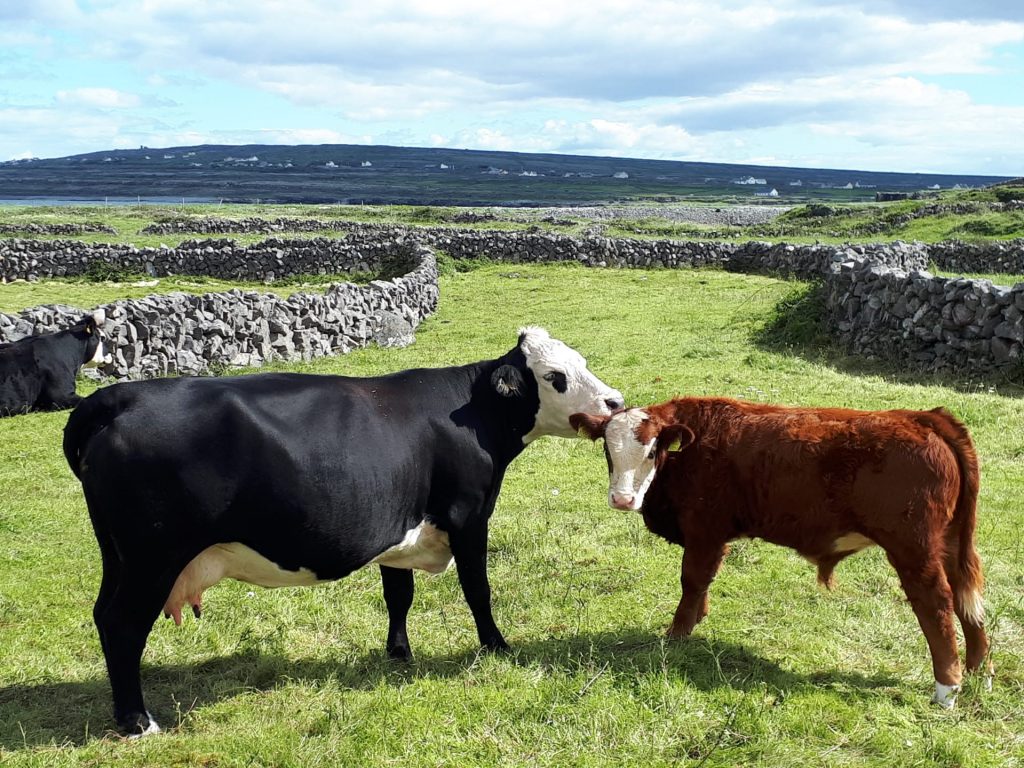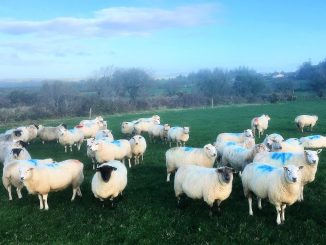
A group of EIPs – European Innovation Partnerships -has come together in Ireland to argue the case for this environmentally engaged form of farming. Individual EIPs focus on water quality, biodiversity, invasive species, agroforestry and other important considerations. While many are in upland and remote areas with what is traditionally considered more difficult land to farm, others are in intensive farming regions. What is interesting and unusual however is to see EIPs in one country coming together to make the case for this approach to farming. Equally intriguing is what’s next – will some of the methods and approaches used in these EIPs become templates for other farming regions in Ireland, and if so via the design of CAP schemes, or through more market-orientated approaches such as PDO and PGI? And what are the implications further afield? Will more EIPs around Europe band together? Below we publish a joint letter by a number of EIPs from Ireland to help stimulate this debate.
Ireland’s approach to European Innovation Partnership Projects (EIPs), co-funded by the Department of Agriculture, Food and the Marine and the EU, focuses on a range of biodiversity, climate and water issues. By adopting a local collaborative approach, the EIPs have developed a suite of mostly small-scale, locally-targeted solutions to some of our most pressing environmental challenges. These innovative approaches provide a rare ‘good news’ story and, when taken as a whole, can inform a more inclusive and impactful approach to Agri Environmental Schemes at a national level.
The EIPs cover a range of locally developed approaches across a broad spectrum of land types and farming systems including, for example:
- The Bride Project, demonstrating biodiversity regeneration on intensive dairy farms in North-East Cork;
- Improving protected habitats by treating the difficult to eradicate invasive Rhododendron in the MacGillycuddy Reeks;
- Demonstrating Agroforestry as a means of delivering better water infiltration and therefore flood resilience in the Inishowen Uplands in Donegal.
EIPs currently operate in 12 different counties involving up to 3,000 farms. A common approach adopted by many of the EIPs is to reward performance when it comes to delivering public goods (protecting biodiversity, water quality, C sequestration/storage etc.) successfully demonstrating a more ‘results-orientated’ approach to providing services as well as food production to society.
Positive results from the EIPs (reinforced by the findings of other completed pilots, initiatives and research projects such as CAP4Nature, RBAPS, BurrenLIFE, AranLIFE, KerryLIFE, HNV_LINK, IDEAL-HNV etc.) show that these innovative approaches have resulted in improvements in species numbers and habitat quality. They have also shown that, if provided with a suitable incentive, farmers will respond. Within a subsidised agricultural system like the CAP, it should be possible to create a market approach that rewards farmers for the environmental services which society demands.
As Ireland develops the next Rural Development Programme (RDP), there are lessons to learn from the EIP projects which offer positive routes for both the maintenance and enhancement of Ireland’s biodiversity that are acceptable to, and can deliver for, both farming and environmental interests, providing practical solutions to the interrelated biodiversity and climate crises. This can provide income opportunities for farmers, helping to address the farm income crisis that is prevalent in most farm sectors in Ireland. In addition, such approaches offer greater environmental accountability for the taxpayer and help Ireland comply with its international environmental obligations.
The ambitious decision by DAFM to establish the EIPs in Ireland in 2016 has delivered approaches that address our climate, biodiversity and water crises. A range of solutions have been developed by the EIPs across farm systems and landscapes and it is essential that lessons from this innovative, inclusive and impactful projects are incorporated in Ireland’s CAP Strategic Plan post 2020. We look forward to constructive engagement and working with DAFM to roll out solutions in the next CAP.
Biodiversity Regeneration In a Dairying Environment (BRIDE)
Inishowen Upland Farmers Project
North Connemara Locally Led Agri Environmental Scheme (NCLLAES)
Protecting Farmland Pollinators
Sustainable Plan for the Macgillycuddy Reeks EIP
Sustainable Uplands Agr-environment Scheme (SUAS)
More on EIPs, HNV farming, Results-Based Payments and Ireland
Could Results-Based Payments Help Finland’s Most Endangered Farmlands?
High Nature Value Farmland (HNVf) – rewarding farmers for biodiversity
Rural Dialogues | Peasants of Nature – French Initiative Reconciles Agriculture & Biodiversity
Earlier
EIP report ARC2020 with IFOAM EU, TP Organics





